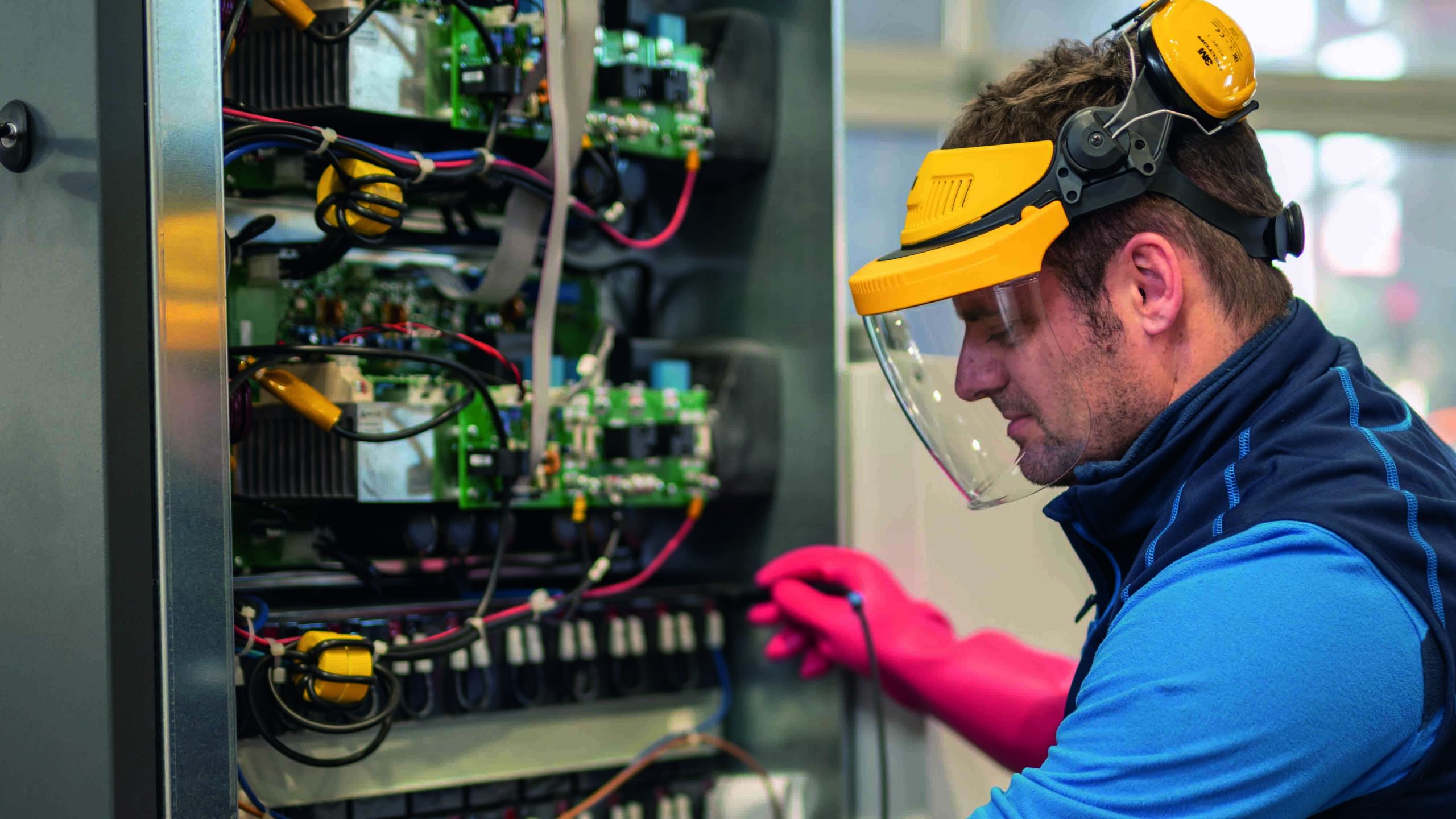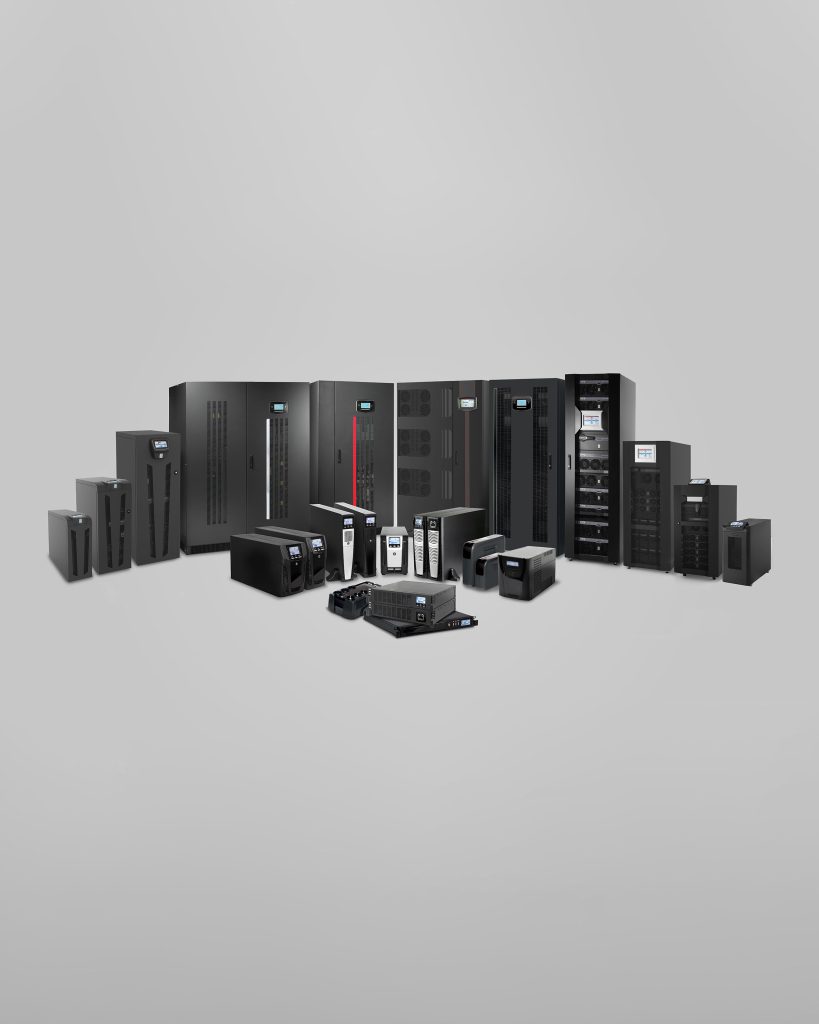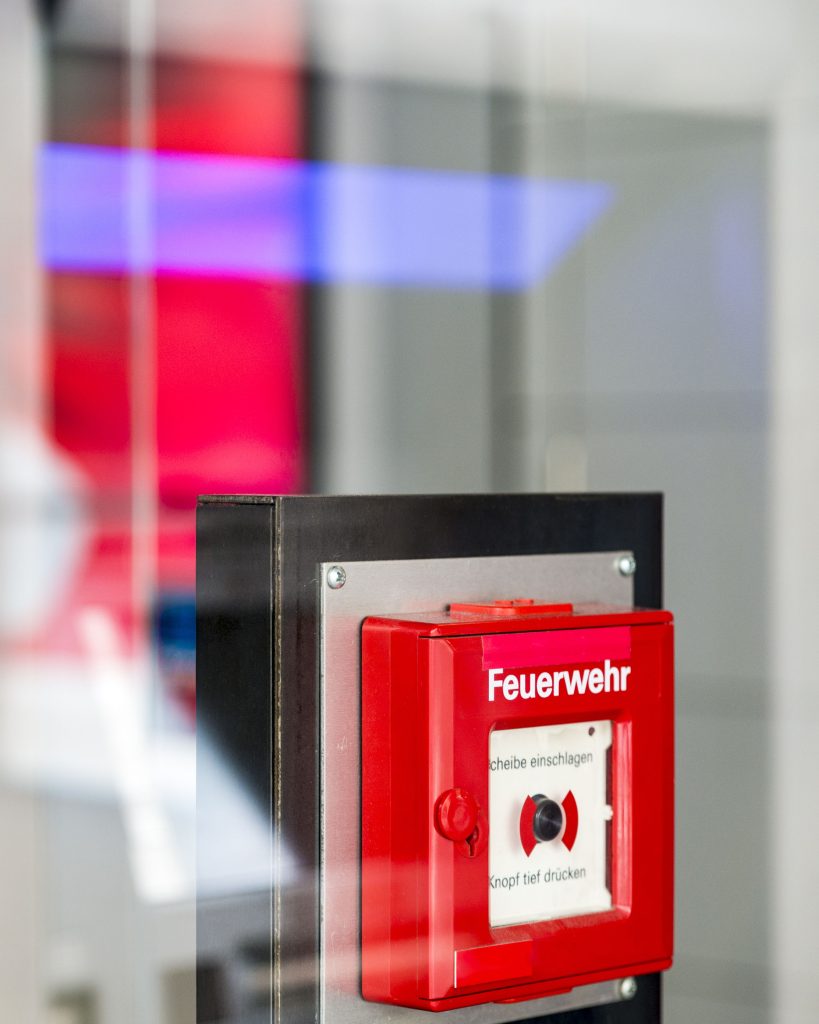Uninterruptible power supply (UPS)
To ensure that you are supplied with energy even in the event of a power failure, we provide you with reliable stationary systems for various emergency power supply applications. Our products correspond to the state of the art and standardization, and we can ensure their functionality through regular maintenance. This is framed by holistic advice and support.
Our area of application: Emergency power supply
Allgäu Batterie combines the appropriate emergency power supply system with a stationary battery system for the various applications of our customers. Batteries with lead-acid, lead-gel or lithium-ion batteries are used for this. The areas of application for emergency power supply systems are diverse. Customized solutions can be offered for UPS systems, BSV systems, DC UPS systems and the safety power supply.
The advantages of uninterruptible power supply

Bridging downtimes due to network failures

Troubleshoot grid anomalies and poor power quality

Ensuring the power supply for your core processes

Ensuring functionality through maintenance
Professional overall solution
Would you like to buy a UPS system? Depending on the application, we combine the UPS system with the appropriate battery for you. Be it lead-acid, lead-gel or lithium-ion, we determine the technology that best suits your application. We provide you with a professional complete solution from conceptual design to professional installation and preventative maintenance.
High quality electricity
In addition to their main use in the event of a power outage, UPS systems also provide high-quality power. Impurities such as undervoltage and overvoltage, frequency deviations or harmonics can be compensated for by the intelligent control.

Bridging downtimes caused by power failures, lightning strikes or short circuits

Troubleshoot grid anomalies and poor power quality

Ensuring the power supply for your core processes
Online
The online UPS system is the only system that actually works uninterrupted. The battery is permanently integrated into the supply and does not have to be switched on if the mains fails. At the same time, it provides the consumer with consistent power quality through surge protection.
Features:
- no switching times
- line filter function
Restrictions:
- high acquisition costs
- high operating costs
Offline UPS systems / Line-interactive UPS systems
With these two system variants, there can be short switchover times in the event of a power failure, which can result in sensitive electronics failing. This is particularly the case with offline UPS systems. Therefore, the line-interactive UPS system with surge protection and very short switching times is a popular alternative.
Features:
- low to moderate acquisition costs
- line filter function (line interactive UPS)
- very efficient
Restrictions:
- Switching time at 4ms (line-interactive UPS) or up to 10ms (offline UPS)

Our UPS systems can optionally be integrated into LAN networks to improve management and monitoring. The communication protocols TCP/IP, HTTP and SNMP are supported. Allgäu Batterie supports you in making optimal use of your security systems. The networking enables efficient and centralized remote management of all UPS systems by displaying all important information. These include the input voltage, the load applied or the capacity of the batteries. In the event of a defect, the software is also able to provide detailed information about the status of the UPS. The client/server structure also simplifies the management of multi-platform network systems.
Features
- sequential and priority shutdown
- cross-platform compatibility
- scheduling of events
- convenient user and message management
- support for virtualized systems and all operating systems
Sensitive applications
For particularly sensitive applications, a redundant emergency power supply with at least two independent UPS systems is recommended. This gives you comprehensive protection for consumers against supply disruptions. If one of the supply sources is not within the tolerance limits, a fully automatic transfer system switches the consumers to another source. This means you receive a highly available, uninterruptible power supply.
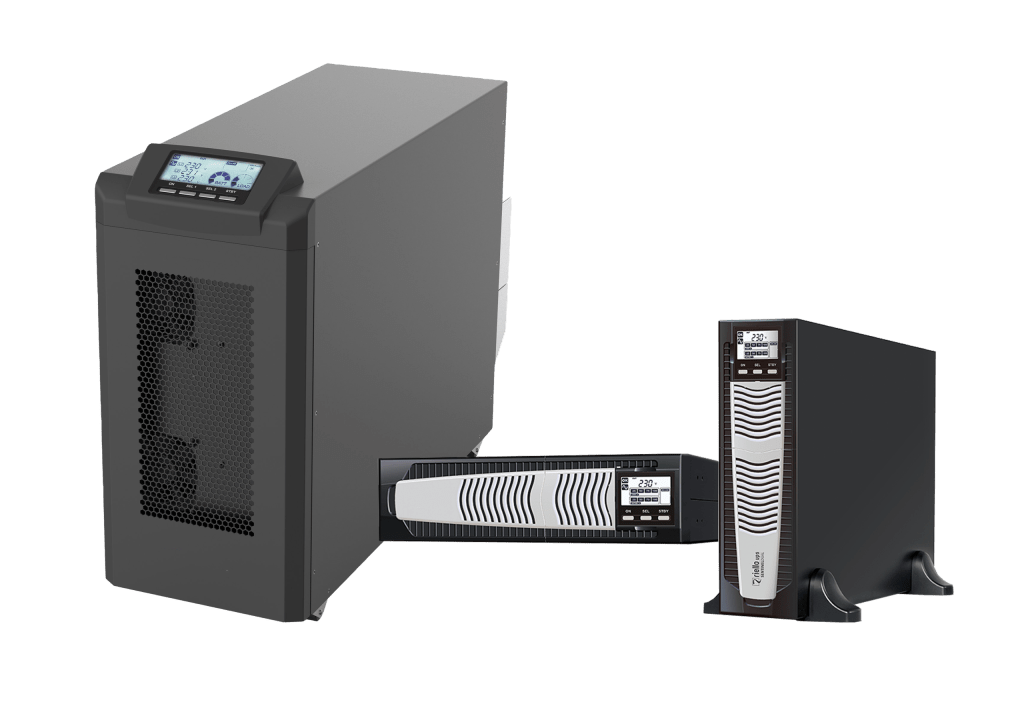
Sentinel
700VA-10kVA
- little need for space
- high efficiency of 95%
- up to three devices can be connected in parallel
- three level inverter
- maintenance bypass
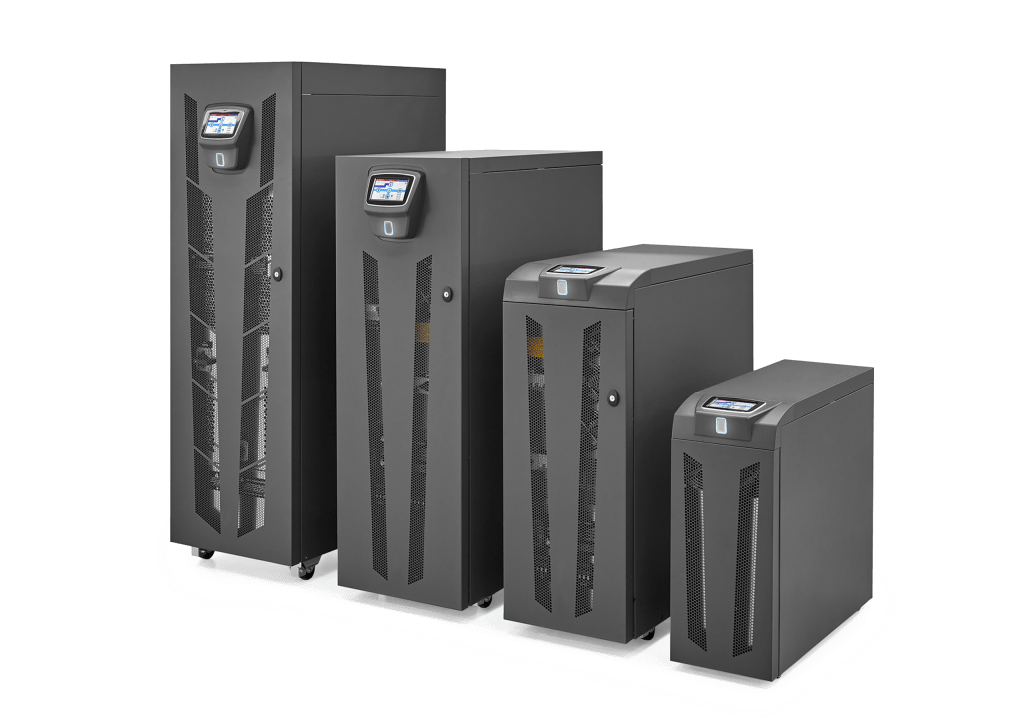
Sentryum
10-120kVA/kW
- wide range of models
- maximum reliability
- efficiency up to 96.6%
- smart battery management
- graphical touchscreen display
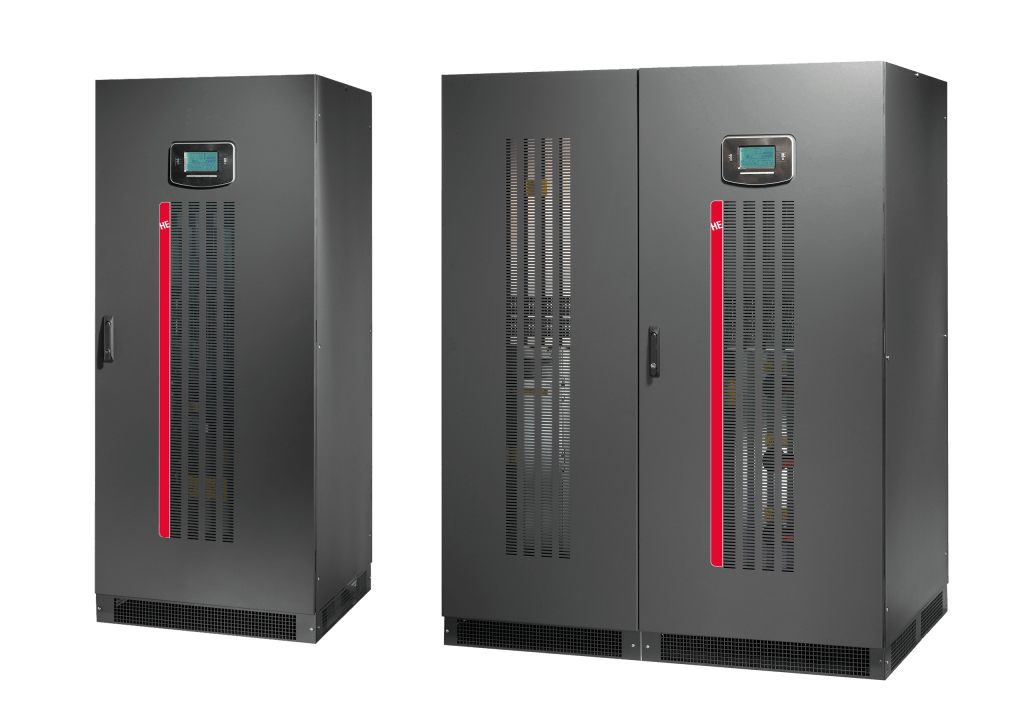
Master HP/HE
100-800kVA
- little need for space
- high efficiency of 95%
- up to 3 devices can be connected in parallel
- three level inverter
- maintenance bypass
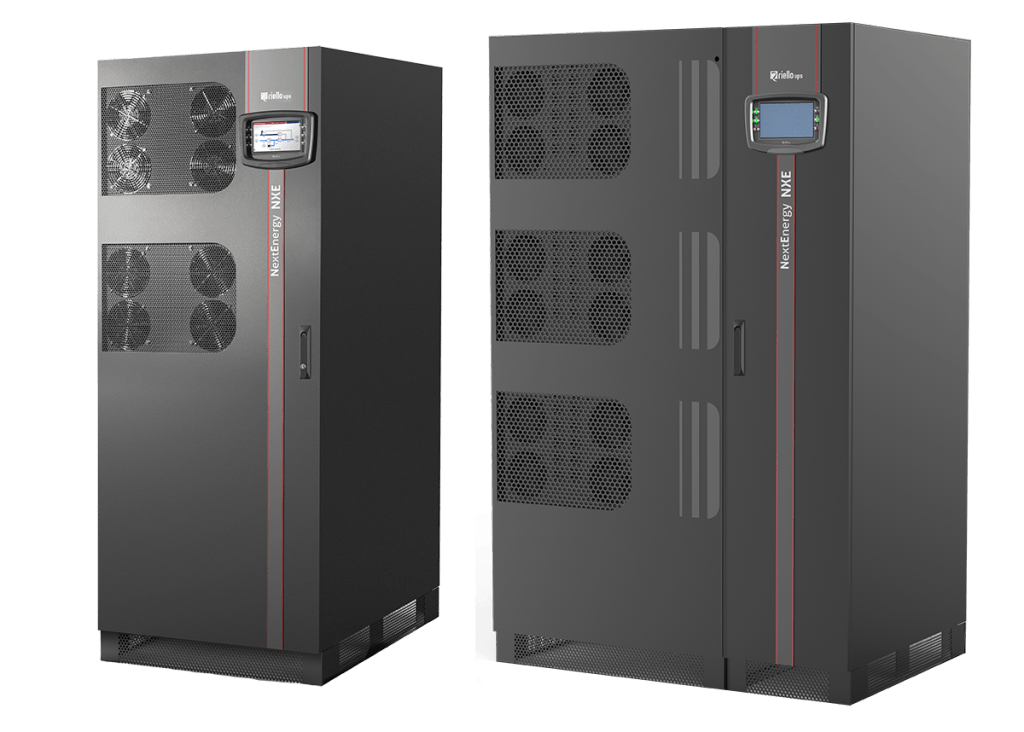
Next Energy
250-800kVA
- modular
- high efficiency up to 97%
- transformerless UPS
- full front access, wall placement
- LED display
- peak load capping
As part of an electrical system, the emergency power system serves as a power source for safety purposes. Electrical consumers play a central role in safety, as these resources are necessary for the safety and health of people and farm animals or to prevent environmental damage and damage to other equipment.
Our offer for you

Reliable power supply for safety-relevant applications

Prevention of damages and liability claims

Ensuring functionality through regular maintenance
The E DIN EN 50171 standard specifies the general requirements for central power supply systems for an independent energy supply to necessary safety devices. Our safety power supply systems fully meet these requirements. These include, among other things, high overload capacity, reverse polarity protection, separate feeds, fast charging times or a contact interface.
Possible operating modes
- switching operation
- continuous operation
- start-up operation
- continuous operation/start-up operation
The construction and operation of high-rise buildings, medium-sized and large garages is subject to special legal regulations (High-rise Building Ordinance (HochhVO) and Garage Ordinance (GarVO)). In the event of a power failure, a safety power supply system takes over the supply of smoke extraction systems, pressure boosting systems for fire water supply, pressure ventilation systems, automatic fire extinguishing systems, fire alarm systems, alarm systems, building radio systems for the fire brigade and elevators.
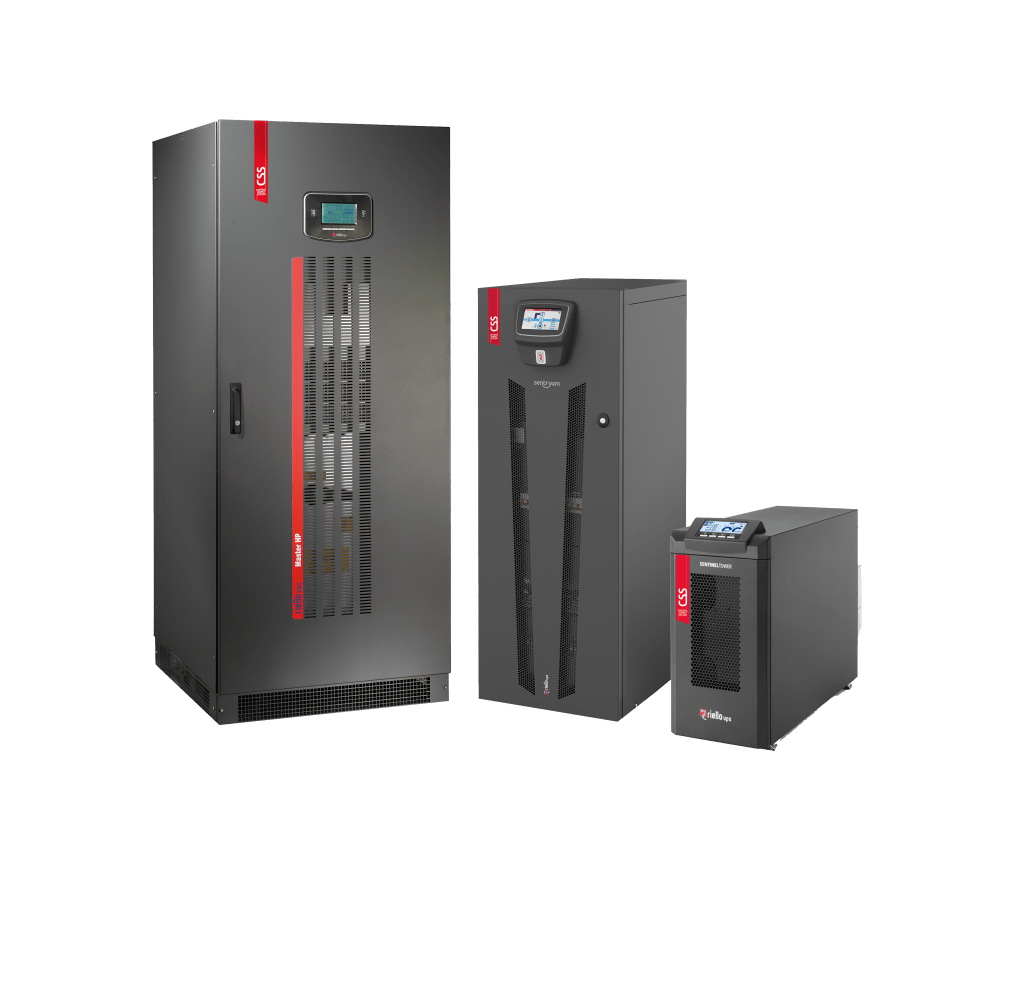
CSS – Central Supply System
3-600kVA
- compliant with DIN EN 50171
- housing conforms to DIN EN 60598-1
- permanent overload 120%
- reverse polarity protection
- high battery charging current
A direct current supply system (DC UPS system) differs from a UPS system in that it supplies the connected electrical consumers with direct current. This has the advantage that the output current has fewer harmonics and is therefore cleaner.
Our DC UPS systems have output voltages of 24 V, 48 V, 60 V or 110 V. Special voltages can also be implemented on request. In terms of technology, we rely on thyristor technology or primarily clocked rectifiers, depending on the application. To ensure maximum reliability, reliable redundancies can be created by operating several rectifiers in parallel. Integration into existing control technology systems makes it easier to manage your building installation.

Reliable power supply for industrial applications

Uninterruptible direct current power supply

Ensuring functionality through regular maintenance
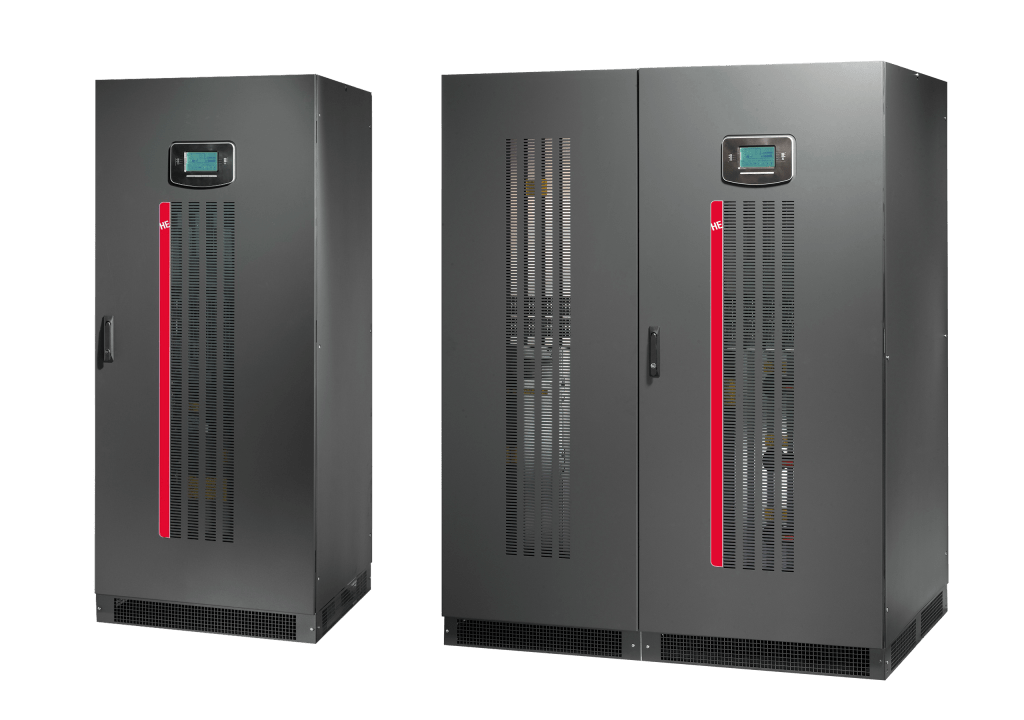
DC supply
1-2,7kVA can be expanded in parallel
- robust industrial design
- input overvoltage protection
- active load sharing
- temperature controlled fan cooling
- 100% performance in case of controller failure
In the medical sector, particularly high demands are placed on power supply systems (DIN VDE 0100-710 and DIN VDE 0558-507). These are not met by industrial UPS systems, e. g. from those which are used for data backup in data centers. In order to avoid any security risk in particularly sensitive applications, the battery-supported central power supply (BSV system) is used.
Our battery-supported central power supply systems (BSV systems) for security purposes reliably supply medically used areas with electricity. They support various consumers: In the 24V DC range, these are mainly surgical lights and comparable lights. 230V AC consumers are typically therapy devices, surgical instruments, measuring and analysis devices and electrical tools. With Allgäu Batterie’s expertise, you can be confident that you can ensure their safety at all times when treating your patients, even in the event of a power failure.

Uninterruptible power supply in the medical sector

Reliable protection for patients

Ensuring functionality through regular maintenance
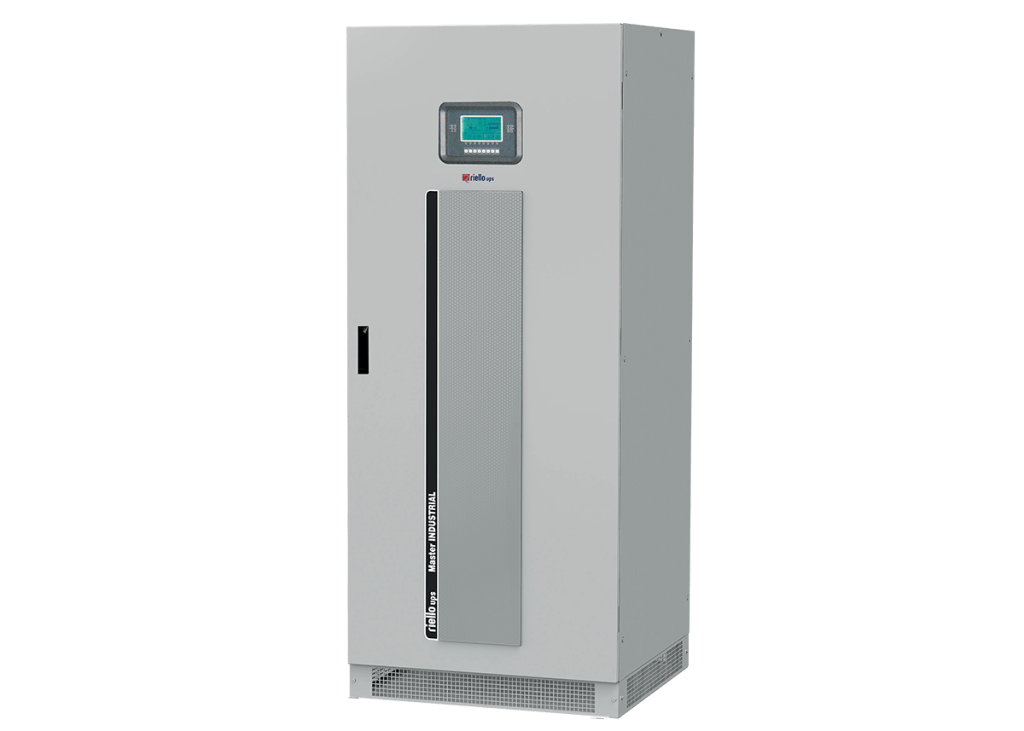
Sentinel
700VA-10kVA
- compliant with VDE0100-710 and VDE0558-50720
- highest reliability
- robust industrial design
- LCD display

Zuverlässige stationäre Batterieanlage für sämtliche Anwendungen der Notstromversorgung

Sicherstellung der Funktionalität durch regelmäßige Wartungen
Stationäre Batterien nehmen in der Notstromversorgung eine entscheidende Rolle ein, denn sie sind zuverlässige Energiegeber für USV- und BSV-Anlagen, Notbeleuchtung, Melde- und Sicherheitseinrichtungen, Gleichstromversorgungsanlagen, Dieselstartsysteme und vieles mehr. Da es sich bei all diesen Anwendungen um sicherheitsrelevante Systeme, handelt, sollten Sie hier keine Abstriche bei der Qualität machen. Verlassen Sie sich deshalb auf die ortsfesten Batterieanlagen von Allgäu Batterie, die Ihnen ein Höchstmaß an Versorgungssicherheit bieten.

Jahrzehntelange Erfahrung mit ortsfesten Batterieanlagen

Langjährige Partnerschaften mit High-End-Produzenten

Ganzheitliche Beratung & Betreuung
Warum Blei-Batterien?

Die Lithium-Ionen-Batterie ist in aller Munde. Und das zurecht, denn die Technologie bietet spezifische Vorteile, die bei entsprechenden Anwendungen einen wirklichen Mehrwert bietet. Dennoch setzen wir bei vielen stationären Einsatzzwecken wie USV-Anlagen, Notbeleuchtungssystemen und batteriegestützten zentralen Stromversorgungen auf Blei-Batterien. Und das hat gute Gründe:
- Bewährte Technologie mit langer Brauchbarkeitsdauer
- Hohe Recyclingquote
- Optimales Preis-Leistungs-Verhältnis
Typen stationärer Batterieanlagen

Für Anwendungsgebiete im Standby-Betrieb mit kapazitiven Entladungen wie beispielsweise USV-Anlagen und Brandmeldezentren nutzen wir verschlossene Blei-Batterien (OGiV, OPzV, AGM).

Für zyklische und kapazitive Entladungen nutzen wir geschlossene Batterien (OPzS, OGi). Auch Nickel-Cadmium-Batterien (NiCd) stehen hierfür zur Verfügung. Typische Anwendungsfälle sind BSV-Anlagen, Starterbatterien für Dieselgeneratoren und Notstromaggregate, Sicherheitsbeleuchtungsanlagen und USV-Anlagen mit langen Überbrückungszeiten oder hoher Entladebelastung.
Für die Wahl der richtigen Technologie ist es essenziell, die Verfügbarkeitsanforderungen der Anwendung mit den relevanten Betriebsparametern, die Umgebungsbedingungen des Aufstellungsorts und die gesetzlichen Vorgaben von unseren Experten bewerten zu lassen.
Projektierung

Eine stationäre Batterieanlage bedarf einer gründlichen Projektierung. Für einen ordnungsgemäßen Batterieraum müssen sämtliche Aspekte der Betriebssicherheit wie Statik, Belüftung, Säureschutz, Brandschutz und Kennzeichnung normkonform geplant und durchgeführt werden. Unsere stationären Batterieanlagen erfüllen die Anforderungen aus DIN EN IEC 62485‑2.
Besondere Aufmerksamkeit kommt dabei auch der elektrotechnischen Sicherheit zu, denn oft handelt es sich um Anlagen, die in den Anwendungsbereich von Arbeiten unter Spannung gemäß DIN VDE 0105-100 fallen. Von der Montage über die Inbetriebnahme bis hin zur Wartung empfehlen wir die Durchführung ausschließlich durch unsere qualifizierten Elektrofachkräfte mit AuS-Spezialausbildung.
Gestelle und Schränke
Die Aufstellsituation ist bei jedem Projekt individuell. Je nach Platzverhältnissen, Statik und Sicherheitsanforderungen definieren wir die passende Lösung. Neben Schränken kommen meist Gestelle zur Anwendung. Beide sind in verschiedenen Ausführungen verfügbar.
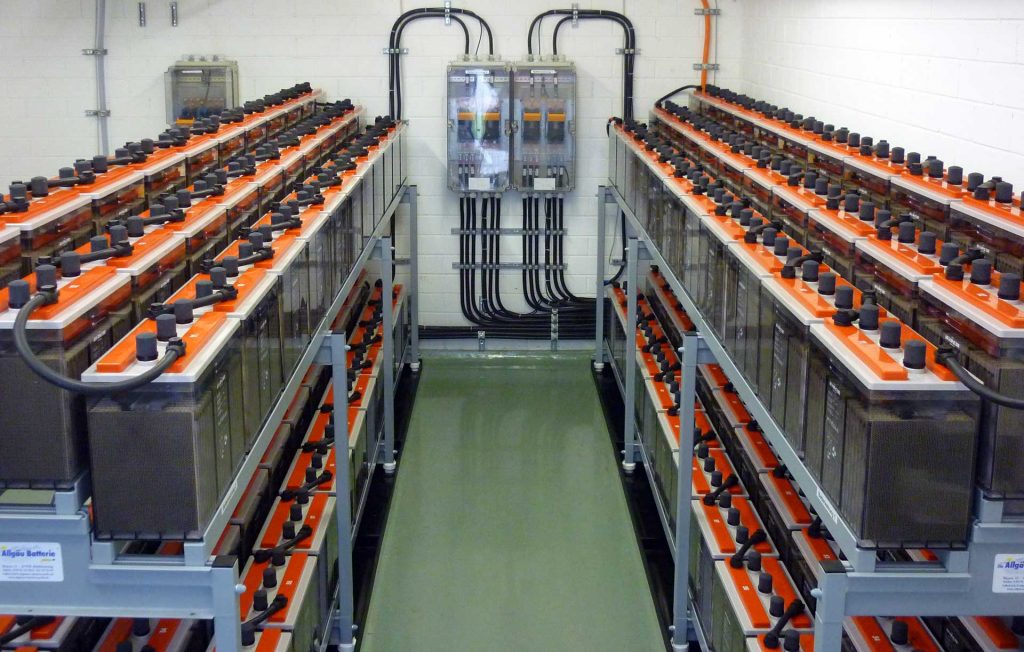
- Boden-, Etagen und Stufenkonstruktion
- Erdbebensicher für Regionen mit hoher seismischer Aktivität
- Klimatisiert für Bereiche mit hoher Umgebungstemperatur
- Schränke mit Auszügen
- Zentralentgasung für den Abtransport des Wasserstoffgases
- Sonderanfertigungen für spezielle Anforderungen, z. B. Schutzart IP65
Optional: VdS-zertifizierte Batterien

Für Gefahrenmeldeanlagen dürfen gemäß VdS-Richtlinie 2102 ausschließlich geprüfte wartungsfreie Blei-Batterien eingesetzt werden. Die Zertifizierung ist eine Voraussetzung, um diese Batterien in sicherheitsrelevanten Gefahrenmeldeanlagen wie Einbruch- oder Brandmeldeanlagen einsetzen zu können, ohne den Versicherungsschutz zu verlieren. Erkenntlich sind diese Batterien an der aufgedruckten Zulassungsnummer.
Our answers to your questions
Contact now

ROBIN MÄUSLE
Key Account Manager
Emergency Power Supply
+49 8374 24124-72
Learn more
